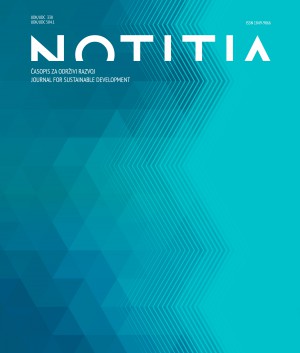Nizozemska bolest u Bolivarijanskoj Republici Venezueli
Dutch disease in the Bolivarian Republic of Venezuela
Author(s): Hrvoje Jošić, Fran Maček PandakSubject(s): Governance, Economic history, Political history, Economic policy, International relations/trade, Economic development, Corruption - Transparency - Anti-Corruption
Published by: Notitia d.o.o.
Keywords: Hugo Chavez; Venezuela; oil economy; Dutch disease;
Summary/Abstract: Ever since its independence, Venezuela has based its economy on the manufacturing and export of a single product. In the 19th century, those products were cocoa and coffee beans, which were replaced by oil in the 20th century. This led to the Dutch disease which harmed other sectors of the economy, so the often corrupt governments bought social peace with socialist policies and government spending. During the 1980s, the first significant plunge in oil prices in the 20th century forced the Venezuelan government to conduct liberal reforms in order to receive assistance from the International Monetary Fund. These led to a significant decline in the standard of living and GDP, as well as, mass protests. Due to the popular discontent, the 1998 presidential elections were won by Hugo Chavez, a former military officer and the leader of the failed coup, who used the rebound in oil prices to start socialist reforms and economic recovery. Expropriations of privately owned assets and price controls weakened the domestic economy and led to inflation, while the rise in government spending strained the public finances. The big drop in oil price in 2014 caused the collapse of Venezuelan economy as well as social and political crisis. The data used in making this paper is from the Venezuelan government and its departments and institutes, as well as from the United Nations, the World Bank, other organisations and Venezuelan and foreign newspapers and web portals.
Journal: Notitia - časopis za održivi razvoj
- Issue Year: 2017
- Issue No: 3
- Page Range: 125-137
- Page Count: 13
- Language: Croatian

